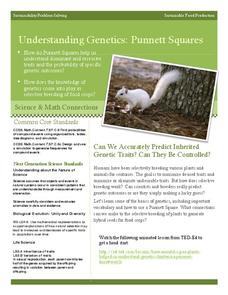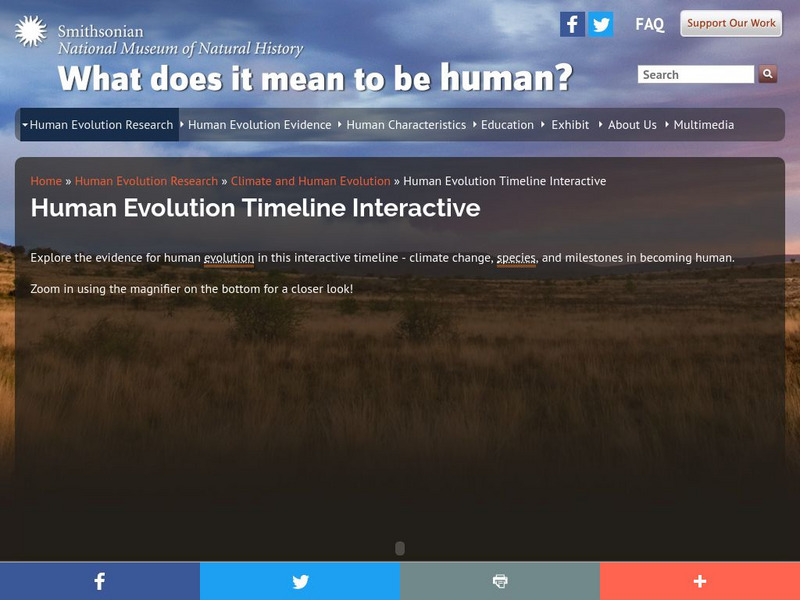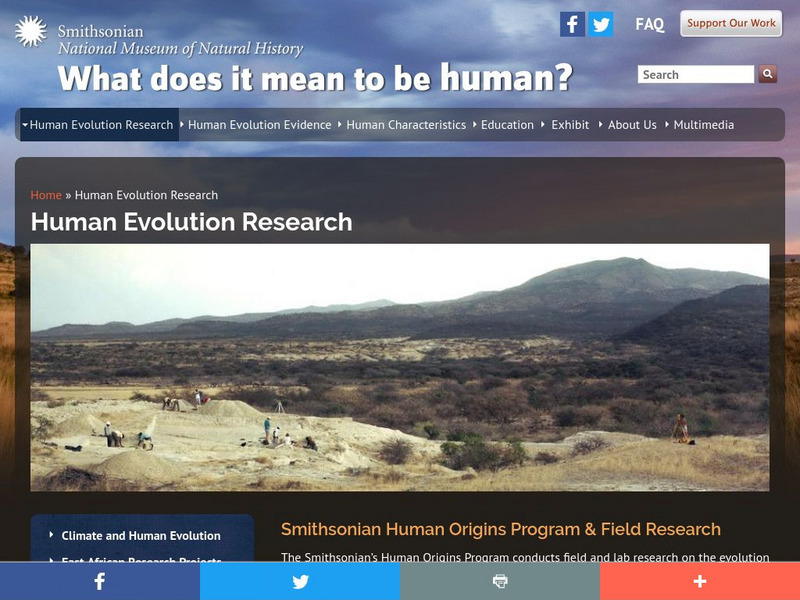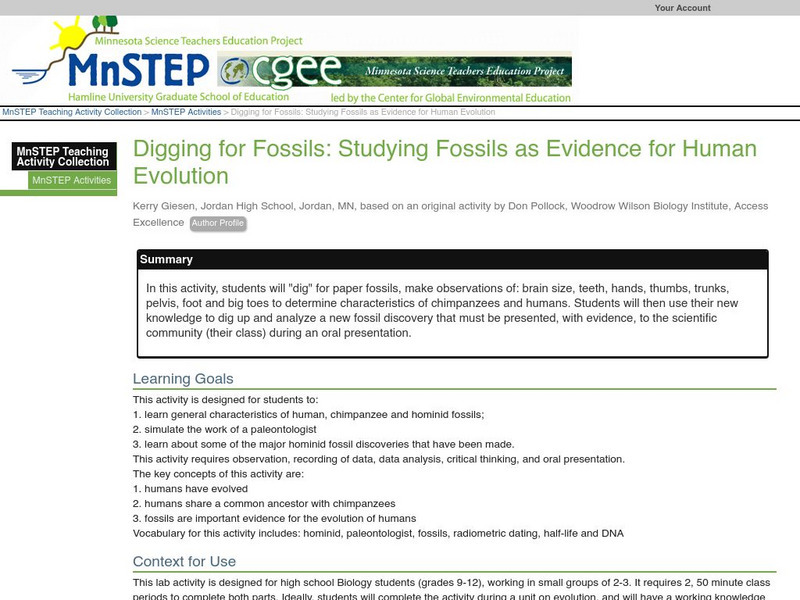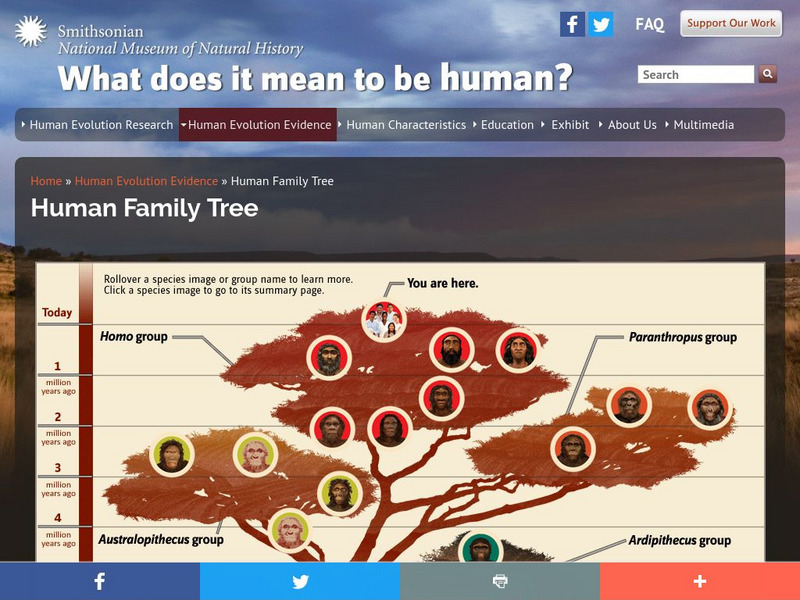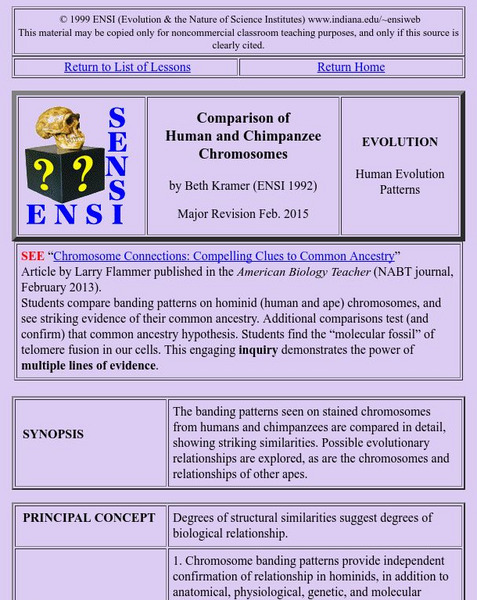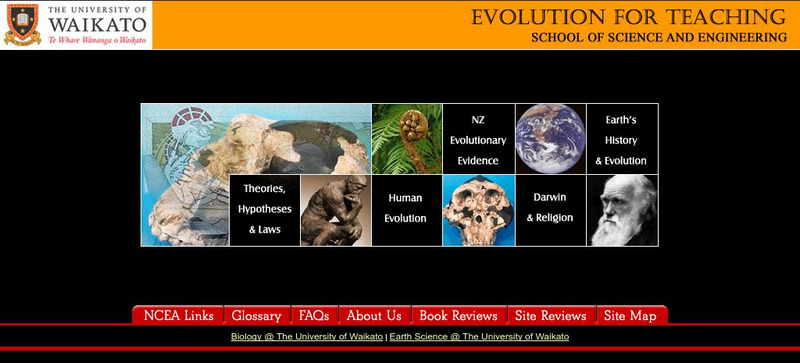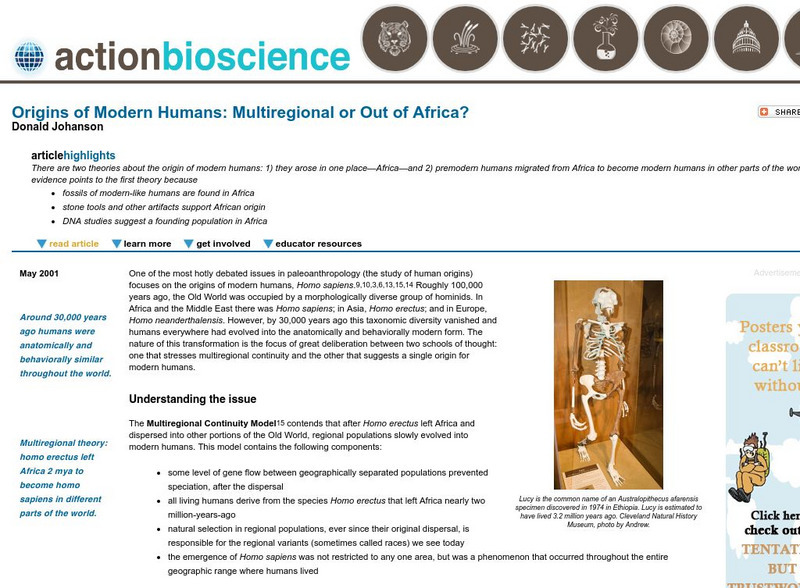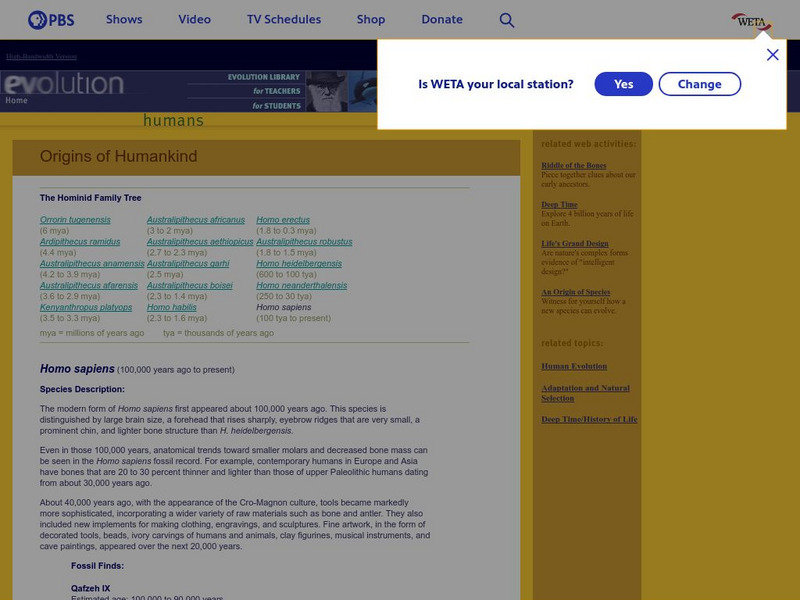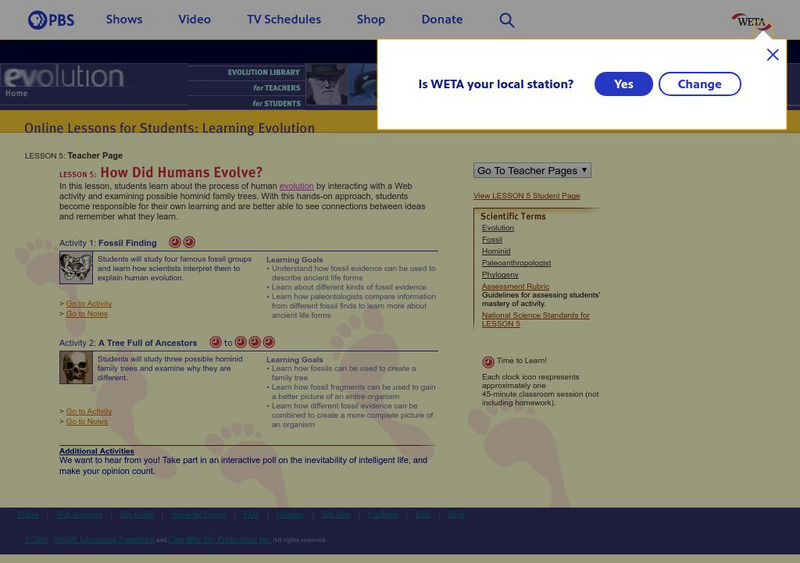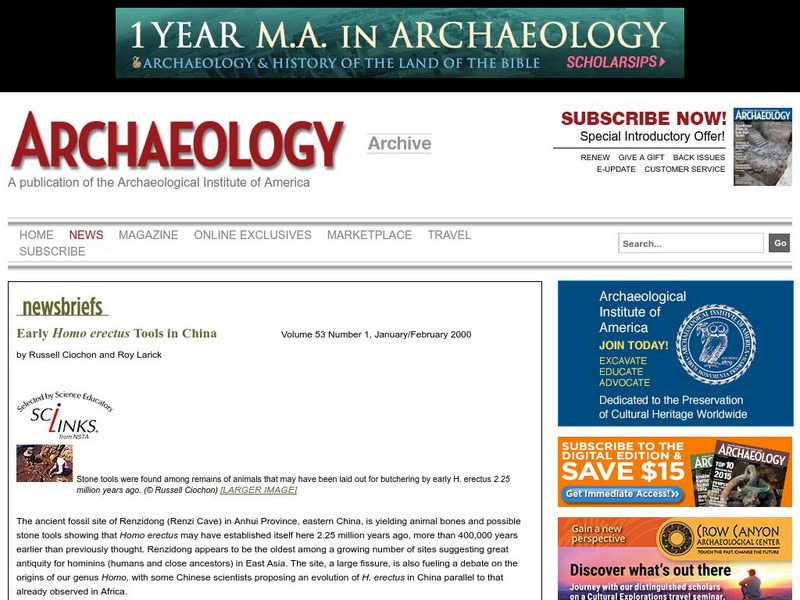Western Kentucky University
Understanding Genetics: Punnett Squares
Can scientists really predict genetic outcomes or are they simply making a lucky guess? Scholars first learn about Gregor Mendel and how to make Punnett squares. Then they extract DNA from a strawberry in a lab with included conclusion...
Curated OER
Prehistory: Our Ancestors Emerge
In this prehsitory worksheet, students read a 3-page article about antropological finds and then respond to 2 short answer questions based on the article.
Curated OER
Plants of the Past
Fourth graders explore ecosystems by examining plants of the past. They discuss ways in which we interact with plants in our daily lives. Students discuss the role plants play in providing food for animals and the significance they had...
Curated OER
Fossils: The Eras of the Earth's History
Students research the four geologic eras of Earth's history. In this extension on a fossils instructional activity, students research the different eras of Earth's history. Students use AppleWorks to create a bar graph containing...
Curated OER
Chromosome Fusion
Students see how patterns can reveal events of the past, thereby merging elements of both experimental and historical science.
Smithsonian Institution
National Museum of Natural History: Human Evolution Timeline Interactive
Explore the evidence for human evolution in this interactive timeline - climate change, species, and milestones in becoming human. During the period of human evolution, the Earth's climate has fluctuated between warm and cold. Some of...
Smithsonian Institution
National Museum of Natural History: What Does It Mean to Be Human: Human Evolution Research
Research continues to discover evidence left behind by prehistoric man. Discover the climate effects on human evolution and explore how the adaptable survived. The Asian and East African Research Projects in Kenya are described. You,...
Science Education Resource Center at Carleton College
Serc: Digging for Fossils: Studying Fossils as Evidence for Human Evolution
As students dig for paper fossils, they make observations of brain size, teeth, hands, thumbs, trunks, pelvis, foot and big toes to determine characteristics of chimpanzees and humans. Then, they dig up and analyze a new fossil...
Khan Academy
Khan Academy: Answers to Exploration Questions: Human Evolution
On this site, find answers to the exploration activity on human evolution. Questions discuss both physical traits of hominid as well as DNA evidence.
Other
E Fossils: Step by Step: Evolution of Bipedalism
In this tutorial, students will identify the fossil evidence for the evolution of bipedalism then hypothesize about the evolutionary pressures affecting bipedal behavior.
Smithsonian Institution
National Museum of Natural History: Human Origins: Human Family Tree
Find the human ancestor you are interested in and click on it either in the timeline or the list below for more details. Each fossil or reconstruction pictured includes links to more details about it.
Indiana University
Ensi: Comparison of Human: Chimpanzee Chromosomes Lesson
This is a great lesson plan that combines Karoytypes and evolution. Students will recognize that the chromosomes of chimpanzees and humans are remarkably similar, then correlate that to their evolutionary relationship.
Other
Evolution for Teaching: School of Science and Engineering
A reference page containing information related to evolution. Topics discussed on the page is the theories, human evolution, evolutionary evidence, Darwin, and Earth's history.
Khan Academy
Khan Academy: Charles Darwin's Evidence for Evolution
An article reviewing over the life of Charles Darwin and his evidence of evolution. Find out how this young naturalist who took a trip around the world collecting evidence about how organisms have changed over time.
American Institute of Biological Sciences
Action Bioscience: Origins of Modern Humans: Multiregional or Out of Africa
Two migration theories are on the table for consideration. Weigh the evidence of each one in this article by Donald Johanson of Lucy fame.
PBS
Pbs: Evolution: Origins of Humankind: Homo Sapiens
Read a description of Homo sapiens as a species, learn about the variety of Homo sapiens fossils that have been found, and discover evidence of the culture of these early people.
PBS
Pbs Learning Media: Life's Grand Design
Are nature's complex forms evidence of "intelligent design"? In this Evolution essay, biologist Kenneth Miller explains how the processes of evolution account for complex structures such as the human eye.
PBS
Pbs Learning Media: Riddle of the Bones
At the online companion Web site of "Evolution," the seven-episode series on PBS, piece together clues to how one of our early ancestors looked as you examine images from four significant fossil finds of Australopithecus afarensis.
CK-12 Foundation
Ck 12: Life Science: Molecular Evidence for Evolution
[Free Registration/Login may be required to access all resource tools.] Chimpanzees and humans turn out to be very similar - if you look at their DNA. When scientists determined the entire genetic code of both humans and chimpanzees,...
Curated OER
Unesco: Israel: Sites of Human Evolution at Mount Carmel
Situated on the western slopes of the Mount Carmel range, the site includes the caves of Tabun, Jamal, el-Wad and Skhul. Ninety years of archaeological research have revealed a cultural sequence of unparalleled duration, providing an...
Curated OER
Smithsonian Nmnh: What Does It Mean to Be Human, Human Evolution Evidence
What does it mean to become human? This brilliant and detailed resource examines early man's behavior, including information on stone tools he used, burial, clothing, and shelter. Find information on genetics including human skin color...
PBS
Pbs Teachers:how Did Humans Evolve?
Explore paleoanthropology by going on a virtual "dig" to answer questions about famous fossil finds. Explain how alternate hominid family trees result from different interpretations of the same fossil evidence.
Archaeological Institute of America
Early Homo Erectus Tools in China
An article which describes a fossil site in eastern China where evidence has been found that Home erectus may have been active in eastern China some 400,000 years earlier than scientists believed. The authors also summarize the debate...
Smithsonian Institution
National Museum of Natural History: Homo Habilis
This resource provides graphics, as well as explanation, of the remains of Homo habilis.


